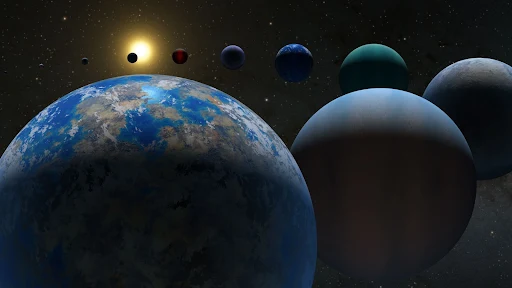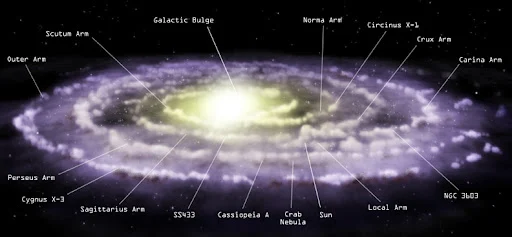Beyond Our Solar System: A Universe of Possibilities
Our solar system, with its eight planets, majestic moons, and awe-inspiring asteroid belts, is a sight to behold. But it's just a tiny speck in the vast, mind-boggling expanse of the cosmos. Beyond the familiar orbits of our celestial neighbors lies a universe teeming with mysteries and wonders, waiting to be unraveled.
Exoplanets: A Glimpse into Other Worlds
One of the most exciting discoveries of recent times has been the confirmation of exoplanets - planets orbiting stars other than our sun. Since the 1990s, astronomers have identified thousands of these alien worlds, each with its own unique characteristics. Some are rocky and Earth-like, while others are gas giants larger than Jupiter. Some might even harbor liquid water, raising the tantalizing possibility of extraterrestrial life.
Galaxies: Islands of Stars in the Cosmic Ocean
Our Milky Way galaxy, with its swirling arms and billions of stars, is just one of countless galaxies scattered across the universe. Each galaxy is a gravitational city-state, holding its stars, planets, and dust within its luminous embrace. And beyond our own galaxy lie billions more, each with its own stories to tell.
Nebulas: Stellar Nurseries and Cosmic Canvas
Nebulas are vast clouds of gas and dust, the birthplaces of stars. Within their swirling mists, new stars ignite, their light sculpting the gas into breathtaking shapes. These cosmic sculptures, like the Pillars of Creation in the Eagle Nebula, are testaments to the ongoing cycle of birth and death in the universe.
Black Holes: Cosmic Vacuum Cleaners
Black holes are the ultimate monsters of the universe. These regions of immense gravity are so dense that not even light can escape their clutches. They devour everything that comes too close, leaving behind a warped region of spacetime known as an event horizon. Black holes are both fascinating and terrifying, reminding us of the immense power and mystery that lie at the heart of the cosmos.
The Search for Life: Are We Alone?
One of the most profound questions humanity has ever grappled with is: are we alone in the universe? The discovery of exoplanets and the possibility of water on some of them has rekindled the age-old search for extraterrestrial life. Missions like the James Webb Space Telescope are designed to peer deeper into the cosmos and search for the elusive biosignatures that might indicate life beyond Earth.
The Future of Exploration: Pushing the Boundaries of Knowledge
Our understanding of the universe beyond our solar system is still in its infancy. But with each new discovery, we gain a deeper appreciation for the vastness and complexity of the cosmos. Future telescopes and space missions will delve even deeper into the unknown, searching for new exoplanets, unraveling the mysteries of black holes, and perhaps even answering the question of whether we are truly alone.
The universe beyond our solar system is a place of endless fascination and wonder. It is a testament to the incredible power and beauty of nature, and it serves as a constant reminder of our place in the grand scheme of things. As we continue to explore and learn, we can only imagine what incredible discoveries await us in the depths of space.
So, the next time you gaze up at the night sky, remember that what you see is just a tiny fraction of the universe's grand story. Beyond our familiar solar system lies a universe teeming with possibilities, waiting to be explored. Let's keep our eyes on the stars and reach for the unknown, for the greatest discoveries are often made just beyond the edge of what we know.



